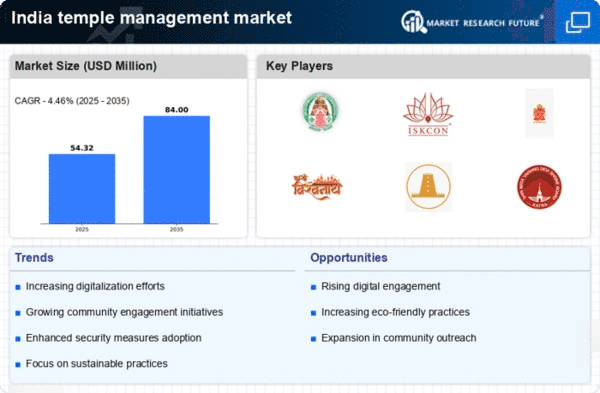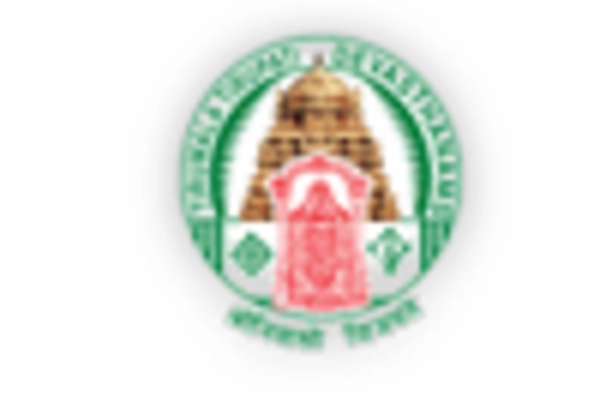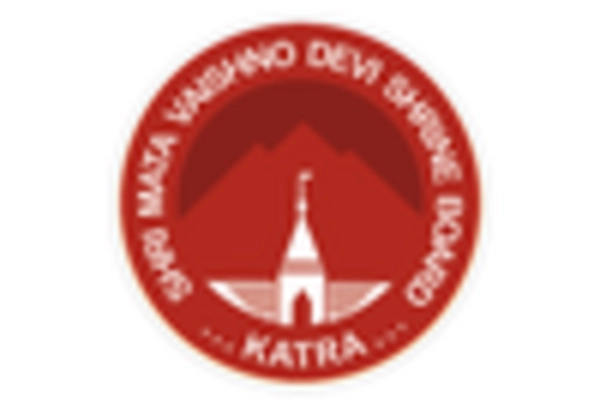Growing Devotional Tourism
The temple management market is significantly influenced by the rise of devotional tourism in India. With millions of pilgrims visiting sacred sites annually, temples are increasingly viewed as vital economic assets. In 2025, it is projected that devotional tourism will contribute approximately $10 billion to the Indian economy, with a substantial portion directed towards temple maintenance and management. This influx of visitors necessitates enhanced management practices to ensure a positive experience, which includes improved facilities and services. Temples are likely to invest in infrastructure upgrades and visitor management systems to accommodate the growing number of tourists. This trend not only boosts the local economy but also emphasizes the importance of effective temple management in preserving cultural heritage and meeting the needs of diverse visitors.
Regulatory Framework and Compliance
The temple management market is increasingly shaped by evolving regulatory frameworks and compliance requirements. In recent years, there has been a growing emphasis on transparency and accountability in the management of temple funds and resources. By 2025, it is expected that stricter regulations will be implemented, requiring temples to maintain detailed financial records and undergo regular audits. This shift towards enhanced governance is likely to foster trust among devotees and stakeholders, as it ensures that funds are utilized effectively for temple maintenance and community welfare. Compliance with these regulations may necessitate the adoption of advanced management systems, thereby driving growth in the temple management market. As temples adapt to these changes, they will likely enhance their operational practices, ensuring sustainability and ethical management.
Rise of Philanthropic Contributions
The temple management market is experiencing a surge in philanthropic contributions, which are becoming a crucial driver of financial sustainability. In 2025, it is projected that donations to temples will increase by approximately 25%, reflecting a growing trend among devotees to support their places of worship. This rise in philanthropy is often linked to the increasing awareness of social responsibility among individuals and corporations. Temples are likely to leverage this trend by implementing transparent donation systems and showcasing the impact of contributions on community development. By effectively communicating the benefits of donations, temples can enhance their fundraising efforts, thereby ensuring the financial health of their operations. This focus on philanthropy not only supports temple management but also reinforces the connection between spiritual practices and social welfare.
Increased Focus on Community Engagement
The temple management market is witnessing a shift towards greater community engagement. Temples are increasingly seen as community hubs, offering various services beyond religious activities, such as educational programs and social services. This trend is likely to enhance the role of temples in local communities, fostering a sense of belonging and participation among devotees. In 2025, it is anticipated that around 40% of temples will implement community outreach programs, which may include health camps and skill development workshops. Such initiatives not only strengthen community ties but also improve the overall perception of temple management. By actively involving the community, temples can ensure sustained support and participation, which is essential for their long-term viability and relevance in society.
Technological Advancements in Temple Management
The temple management market is experiencing a notable shift due to technological advancements. The integration of software solutions for managing temple operations, including donation tracking and event scheduling, has become increasingly prevalent. In 2025, it is estimated that around 30% of temples in India will adopt digital management systems, enhancing operational efficiency. These technologies not only streamline administrative tasks but also improve communication with devotees, thereby fostering a more engaged community. Furthermore, the use of mobile applications for donations and event notifications is likely to increase, reflecting a broader trend towards digital engagement in religious practices. This technological evolution is crucial for the temple management market, as it aligns with the expectations of a tech-savvy generation seeking convenience and transparency in their spiritual engagements.
















